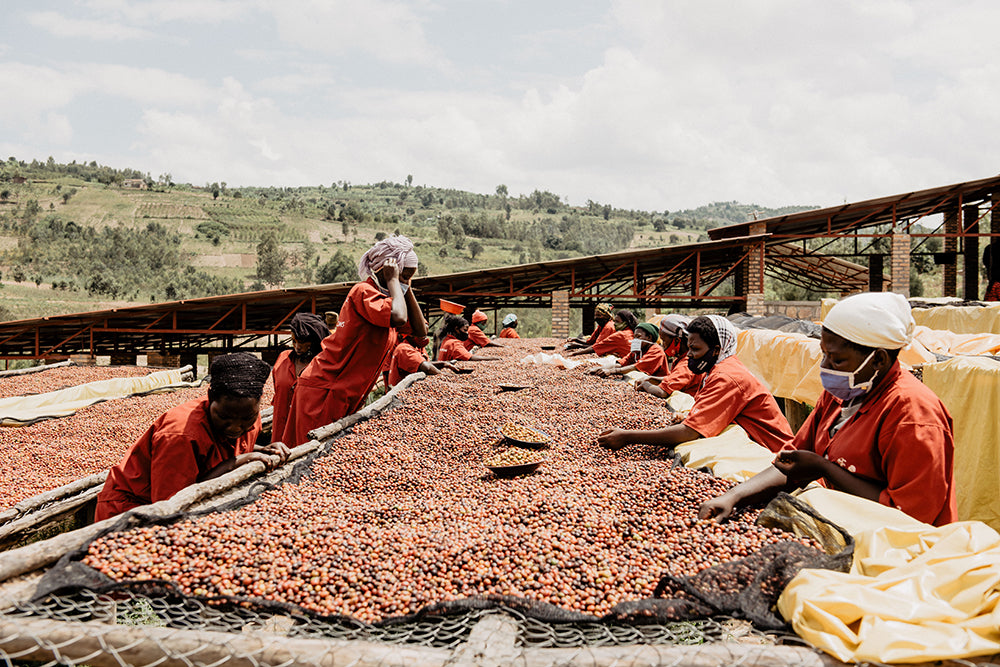Numero Uno’s direct trade coffee from Rwandan women coffee growers and the important role played by Tropic Coffee in promoting sustainable and ethical coffee production means consumers can now choose coffee that is grown using environmentally friendly methods and supports fair labour practices. Direct trade coffee provides consumers with an opportunity to support these values by purchasing coffee directly from farmers who are committed to producing sustainable and ethical coffee.
Rwanda is known for its high-quality coffee, which is grown on the fertile slopes of the country's hills. However, the coffee industry in Rwanda has faced many challenges over the years, including low prices, lack of access to markets, and a lack of support for small-scale farmers, particularly women.
Women make up a significant percentage of the coffee farmers in Rwanda, but they face unique challenges, including limited access to education, resources, and markets. These challenges have contributed to low yields and poor-quality coffee, which in turn results in low prices for the farmers.
In recent years, there has been a growing movement towards direct trade coffee, which connects coffee farmers directly with buyers in the global market. This approach provides farmers with fair prices for their coffee, promotes sustainable and ethical production practices, and helps to build stronger relationships between coffee farmers and buyers.
One company that is leading the way in direct trade coffee from Rwandan women coffee growers is Tropic Coffee. Founded by a group of passionate coffee lovers, Tropic Coffee is dedicated to sourcing the highest quality coffee directly from small-scale farmers, with a focus on promoting gender equity and supporting sustainable agriculture.
Tropic Coffee works closely with Rwandan women coffee growers, providing them with training and support to help them improve the quality of their coffee and increase their yields. The company also pays fair prices for their coffee, ensuring that these women can earn a sustainable income from their work.
The impact of Tropic Coffee's work can be seen in the lives of the women coffee growers they work with. Many of these women have been able to invest in their farms and improve their living conditions thanks to the fair prices they receive for their coffee. They have also gained greater independence and a stronger voice in their communities, helping to promote gender equality and social justice.
One such success story is that of Epiphanie Mukashyaka, a Rwandan coffee farmer who has received international recognition for her coffee. Mukashyaka was widowed during the Rwandan genocide, but she was determined to support her family and took over her husband's coffee farm. She focused on producing high-quality coffee and building relationships with buyers, including Tropic Coffee. With the help of Tropic Coffee, Mukashyaka was able to improve the quality of her coffee and increase her yields. Today, she is a successful coffee farmer and exporter, with her coffee being sold in international markets.
In conclusion, direct trade coffee from Rwandan women coffee growers is an important and growing movement in the coffee industry, and Tropic Coffee is playing a critical role in promoting sustainable and ethical coffee production in Rwanda. By supporting companies like Tropic Coffee, we can help to build a more just and sustainable future for coffee farmers and their communities around the world.

